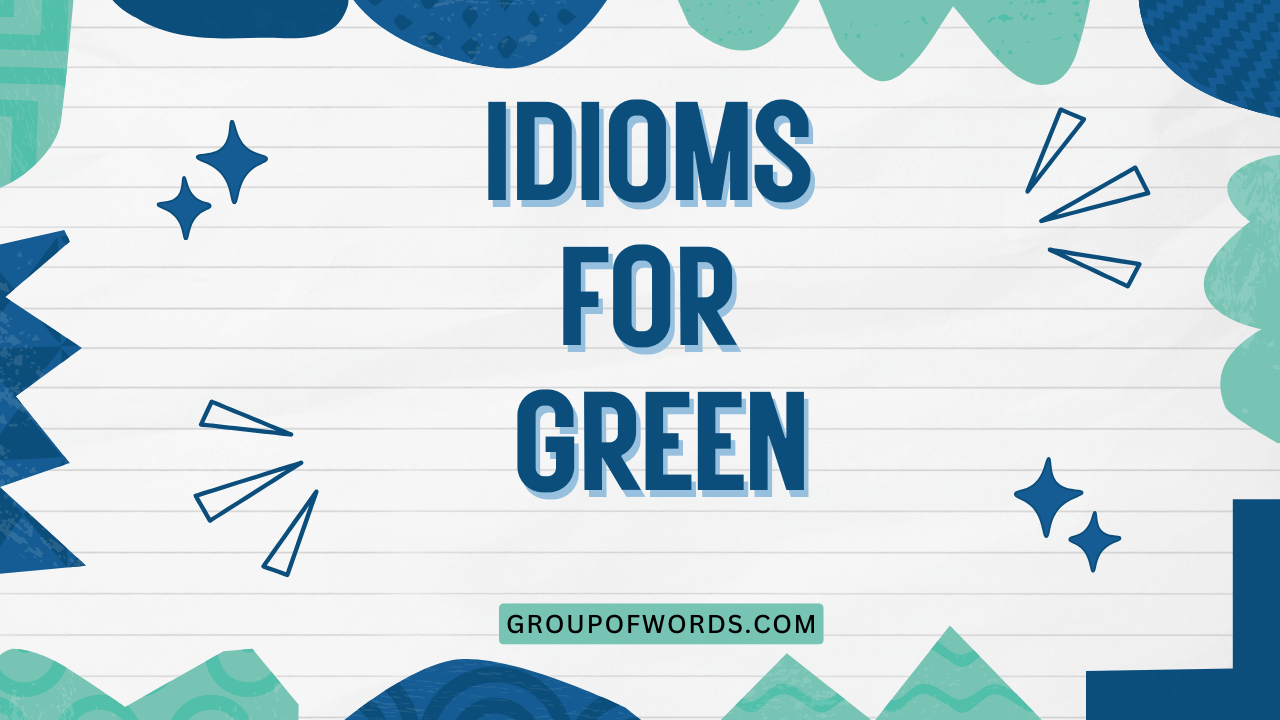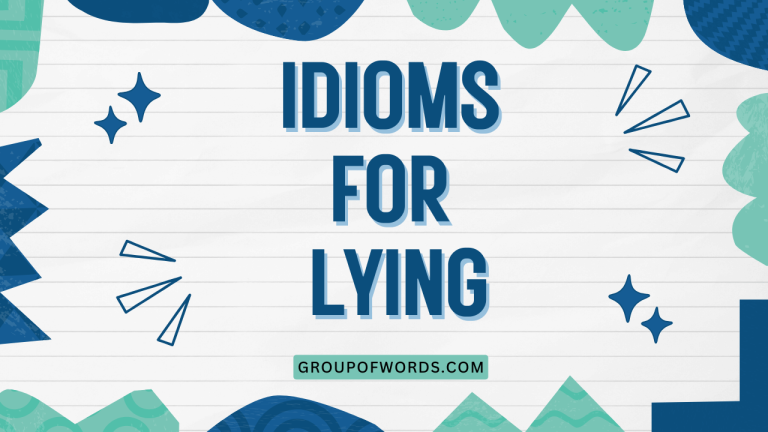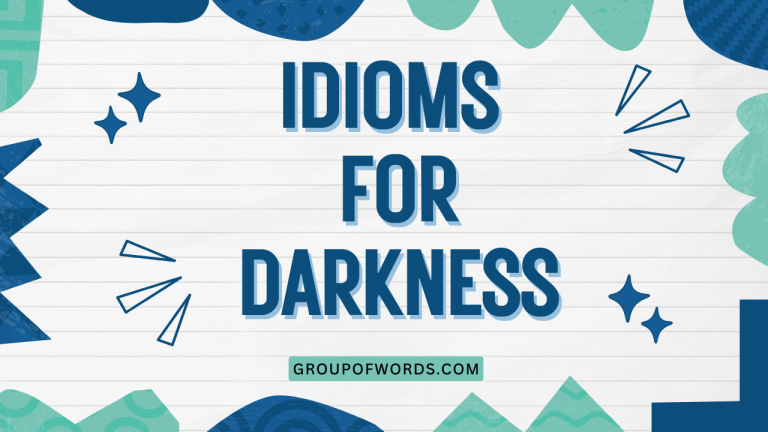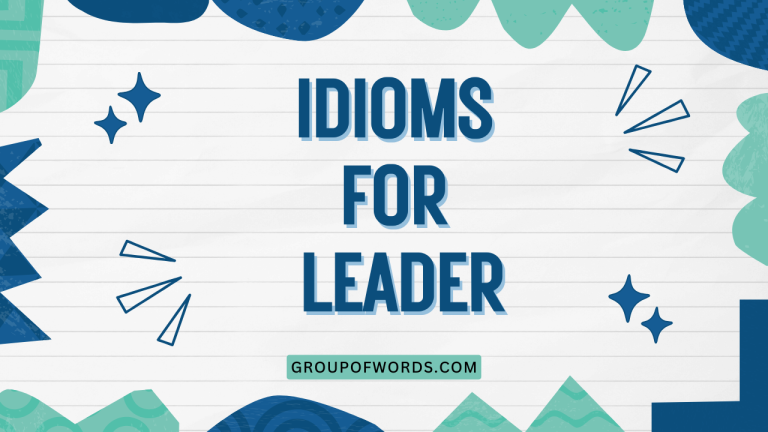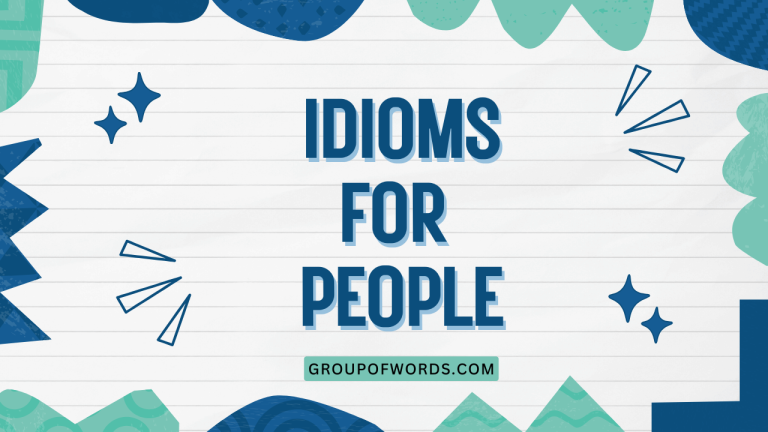Idioms for Green: Mastering Figurative Language
Idioms are an essential part of the English language, adding color and depth to our conversations and writing. Understanding idioms, especially those related to colors like “green,” can significantly enhance your comprehension and fluency.
This article delves into the fascinating world of idioms featuring the color green, exploring their meanings, origins, and usage. Whether you’re an English language learner or a native speaker looking to expand your vocabulary, this comprehensive guide will provide you with the knowledge and practice you need to master these expressive phrases.
Table of Contents
- Introduction
- Definition of Idioms and Green Idioms
- Structural Breakdown of Green Idioms
- Types and Categories of Green Idioms
- Examples of Green Idioms
- Usage Rules for Green Idioms
- Common Mistakes with Green Idioms
- Practice Exercises
- Advanced Topics: Origins and Cultural Significance
- FAQ
- Conclusion
Definition of Idioms and Green Idioms
An idiom is a phrase or expression whose meaning cannot be understood from the literal meanings of its individual words. Instead, it has a figurative meaning that is known through common use. Idioms often add color, humor, and nuance to language, making it more expressive and engaging. Mastering idioms is crucial for achieving fluency and understanding native speakers.
Green idioms are idioms that incorporate the word “green” and carry figurative meanings related to various concepts such as inexperience, envy, environmentalism, money, or illness. These idioms leverage the symbolic associations of the color green to convey complex ideas in a concise and memorable way. For instance, “green with envy” doesn’t literally mean someone is turning green; it signifies they are intensely jealous.
Structural Breakdown of Green Idioms
Green idioms typically follow a standard structural pattern, often involving the word “green” combined with a preposition, adjective, noun, or verb. Understanding these patterns can help you recognize and interpret new green idioms more easily.
- Green + Prepositional Phrase: Green around the gills (looking sick).
- Green + Adjective: Green-eyed monster (jealousy).
- Green + Noun: The green light (permission to proceed).
- Green + Verb: To go green (to become environmentally conscious).
The grammatical role of “green” within the idiom can vary. It can function as an adjective modifying a noun (e.g., “greenhorn”), or it can be part of a larger phrase acting as a noun (e.g., “the green”).
The key is to recognize that the entire phrase, rather than the individual words, carries the idiomatic meaning.
Types and Categories of Green Idioms
Green idioms can be categorized based on the concept or emotion they represent. Here are some common categories:
Inexperience
Idioms related to inexperience often use “green” to suggest a lack of knowledge or skill. This category includes expressions like “greenhorn” and “wet behind the ears,” both indicating someone new and inexperienced.
Envy/Jealousy
The association of green with envy is deeply rooted in cultural history. Idioms like “green with envy” and “green-eyed monster” capture the intense feeling of jealousy or resentment towards someone else’s success or possessions.
These idioms are commonly used to describe feelings of covetousness.
Environmentalism
In recent years, “green” has become strongly associated with environmental awareness and sustainability. Idioms like “go green” and “green initiative” reflect this trend, referring to actions taken to protect the environment and reduce carbon footprint.
This association highlights the growing importance of environmental conservation.
Money
In some contexts, “green” is used to refer to money, particularly US dollars. This usage is less common in idiomatic expressions but can appear in phrases related to financial matters.
The connection between green and money stems from the color of US currency.
Illness
The color green can also be associated with sickness or nausea. The idiom “green around the gills” is a classic example, describing someone who looks pale and unwell, often due to seasickness or other forms of nausea.
This idiom evokes a visual image of someone looking sickly.
Examples of Green Idioms
The following sections provide detailed examples of green idioms, categorized by their meaning. Each example is accompanied by a definition and a sample sentence to illustrate its usage.
Green as Inexperience
These idioms refer to a lack of experience or skill, often implying naivety or a lack of sophistication. They are used to describe someone who is new to a particular field or situation.
The table below shows examples of idioms related to “green” and inexperience.
| Idiom | Meaning | Example Sentence |
|---|---|---|
| Greenhorn | A novice or someone new to a particular activity or field. | He’s a greenhorn when it comes to farming, but he’s eager to learn. |
| Wet behind the ears | Inexperienced and naive. | She’s still wet behind the ears, so don’t expect her to know all the answers. |
| Green as grass | Completely inexperienced and lacking knowledge. | The new intern is as green as grass; he needs a lot of training. |
| Still green | Not yet mature or fully developed. | The project is still green and requires further refinement before launch. |
| A bit green | Slightly inexperienced or new to something. | I’m a bit green when it comes to coding, but I’m learning quickly. |
| Green in the trade | New to a particular profession or job. | He’s green in the trade, but he has potential to become a great carpenter. |
| Green at the gills | (Sometimes used to imply inexperience, but more commonly illness) Appearing sickly or unwell, often due to nausea. | He looked green at the gills after the roller coaster ride. |
| Young and green | Inexperienced due to youth. | She’s young and green, but she’s got a bright future ahead of her. |
| Not so green | Not as naive as one might think. | He may seem naive, but he’s not so green as he appears. |
| Too green to know better | Lacking the experience to make informed decisions. | She was too green to know better and made a few mistakes early on. |
| Prove your green | Demonstrate one’s inexperience or lack of knowledge. | He needed to prove his green before being trusted with important tasks. |
| Fresh and green | New and inexperienced, but enthusiastic. | The team was fresh and green, full of energy and new ideas. |
| Green around the edges | Slightly inexperienced or unpolished. | His presentation was green around the edges, but the content was solid. |
| Green recruit | A new and inexperienced member of a team or organization. | The green recruit was assigned a mentor to guide him. |
| Green in judgment | Lacking wisdom or experience in making decisions. | He was green in judgment and made a few poor choices. |
| Green hand | An inexperienced worker, especially in agriculture. | The farm hired a green hand to help with the harvest. |
| Green in years | Young and inexperienced. | She’s green in years but has a remarkable talent. |
| Green in wisdom | Lacking knowledge and understanding. | He’s green in wisdom and still has much to learn. |
| Green at heart | Naive and innocent. | Despite his tough exterior, he’s still green at heart. |
| Green in the ways of the world | Unfamiliar with the complexities and realities of life. | She’s green in the ways of the world and needs guidance. |
| Green in experience | Lacking practical knowledge. | He’s green in experience but eager to gain new skills. |
Green as Envy/Jealousy
These idioms use “green” to symbolize envy or jealousy, reflecting the common association of the color with these negative emotions. They are often used to describe someone who is resentful of another person’s success or possessions.
The table below shows examples of idioms related to “green” and envy or jealousy.
| Idiom | Meaning | Example Sentence |
|---|---|---|
| Green with envy | Extremely jealous or envious. | She was green with envy when she saw his new car. |
| Green-eyed monster | Jealousy personified. | Jealousy is the green-eyed monster that can destroy relationships. |
| See green | To be overcome with jealousy or anger. | When he found out about her promotion, he started to see green. |
| A fit of the greens | A bout of jealousy or envy. | She had a fit of the greens when she saw her friend’s new house. |
| Turn green with envy | To become extremely jealous. | They turned green with envy when they heard about his success. |
| Green around the heart | Having a jealous or envious nature. | He’s a bit green around the heart when it comes to other people’s achievements. |
| Green in the eyes | Looking at someone with envy or jealousy. | She looked at the winner with green in the eyes. |
| Green thoughts | Envious or jealous thoughts. | He tried to suppress his green thoughts and congratulate his colleague. |
| Green-minded | Having a tendency to be envious or jealous. | She’s a bit green-minded, so try not to flaunt your success around her. |
| Greenly jealous | Intensely envious. | He was greenly jealous of his brother’s accomplishments. |
| A green tinge | A slight hint of envy or jealousy. | There was a green tinge to her smile when she congratulated him. |
| Green passions | Strong feelings of jealousy or envy. | He struggled to control his green passions when he saw her with another man. |
| Green resentment | A feeling of bitterness and envy. | She harbored green resentment towards her friend’s success. |
| The green sickness | An old term for a disease thought to be caused by suppressed envy. | In the past, doctors sometimes attributed unexplained ailments to the green sickness. |
| Green with jealousy | Overcome with feelings of jealousy. | She was green with jealousy when she saw him with another woman. |
| Green-eyed look | A gaze filled with envy. | He gave her a green-eyed look as she accepted the award. |
| Green in spirit | Having an envious disposition. | He’s green in spirit and often criticizes others’ achievements. |
| Green with desire | Longing for something someone else has. | She was green with desire for his luxurious lifestyle. |
| Green with bitterness | Filled with resentful envy. | He was green with bitterness after being passed over for the promotion. |
| Green with spite | Showing malice due to envy. | She acted green with spite, trying to sabotage his project. |
| Green-hearted | Having an envious nature. | He’s green-hearted and always finds fault in others’ success. |
Green as Environmentalism
These idioms reflect the growing awareness of environmental issues and the importance of sustainable practices. They often refer to actions or initiatives aimed at protecting the environment.
The table below shows examples of idioms related to “green” and environmentalism.
| Idiom | Meaning | Example Sentence |
|---|---|---|
| Go green | To adopt environmentally friendly practices. | Our company is trying to go green by reducing waste and using renewable energy. |
| Green initiative | A project or plan designed to promote environmental sustainability. | The city launched a green initiative to encourage recycling and reduce pollution. |
| Green energy | Energy derived from renewable sources that do not harm the environment. | We are investing in green energy to reduce our carbon footprint. |
| Green technology | Technology designed to minimize environmental impact. | The company is developing green technology to create sustainable products. |
| Green economy | An economy that prioritizes environmental sustainability and resource efficiency. | The government is promoting a green economy to create jobs in renewable energy. |
| Green building | Construction practices that minimize environmental impact and maximize energy efficiency. | The new office building is a green building with solar panels and recycled materials. |
| Green living | A lifestyle that emphasizes environmental sustainability. | We are trying to adopt green living by reducing our consumption and using eco-friendly products. |
| Green revolution | A movement towards sustainable agriculture and environmental practices. | The green revolution aims to transform farming practices to protect the environment. |
| Green consumerism | The practice of purchasing products and services that are environmentally friendly. | Green consumerism is on the rise as more people become aware of environmental issues. |
| Green credentials | Evidence of environmentally responsible practices. | The company’s green credentials helped them win the contract. |
| Green solutions | Environmentally friendly alternatives to traditional practices. | We need to find green solutions to address climate change. |
| Green movement | A political and social movement focused on environmental conservation. | The green movement is gaining momentum as more people become concerned about the environment. |
| Green consciousness | Awareness and concern for environmental issues. | There is a growing green consciousness among consumers and businesses. |
| Green policies | Government regulations and initiatives aimed at environmental protection. | The government is implementing green policies to reduce pollution and protect natural resources. |
| Green investments | Financial investments in environmentally sustainable projects and companies. | Green investments are becoming more popular as investors seek to support sustainable development. |
| Green funds | Mutual funds that invest in environmentally responsible companies. | Many investors are choosing green funds to align their investments with their values. |
| Green rating | An assessment of a product or company’s environmental performance. | The product received a high green rating for its sustainable packaging and manufacturing. |
| Green wash | The practice of falsely promoting a product or company as environmentally friendly. | Beware of green wash; always check the facts before believing a company’s environmental claims. |
| Green label | A symbol or certification indicating that a product meets environmental standards. | Look for the green label when purchasing products to ensure they are eco-friendly. |
| Green shift | A transition towards a more sustainable and environmentally friendly economy. | The world is undergoing a green shift as countries adopt policies to reduce carbon emissions. |
| Green collar jobs | Jobs related to environmental sustainability and renewable energy. | The green collar jobs sector is growing rapidly as the demand for sustainable solutions increases. |
Green as Money
In some instances, “green” is used colloquially to refer to money, especially US dollars. While not as common in formal idioms, it can appear in informal expressions related to financial matters.
The table below shows examples of idioms related to “green” and money.
| Idiom | Meaning | Example Sentence |
|---|---|---|
| Greenbacks | US paper currency, especially dollars. | He made a lot of greenbacks in the stock market. |
| Show me the green | A demand to see proof of funds or payment. | Before we sign the contract, show me the green. |
| Flush with green | Having a lot of money or cash. | After selling his company, he was flush with green. |
| Green stuff | Money or cash, often referring to US dollars. | He’s got plenty of the green stuff to invest in new ventures. |
| Roll in the green | To become very wealthy. | If this business takes off, we’ll be rolling in the green. |
| Green dream | A financial goal or ambition. | His green dream is to become a millionaire before he turns 40. |
| Green light special | A financial incentive or deal. | They offered a green light special to attract new investors. |
| Green fountain | A source of wealth or income. | His investments became a green fountain, providing a steady stream of income. |
| Green mine | A business or opportunity that generates a lot of money. | The new software turned out to be a green mine for the company. |
| Green zone | A financially stable and profitable state. | The company is now in the green zone after years of losses. |
| Filled with green | Having a plentiful supply of money. | His wallet was filled with green after his lucky night at the casino. |
| See only green | To be motivated solely by financial gain. | Some people see only green and will do anything for money. |
| Green rush | A sudden influx of money or investment in a particular sector. | The tech industry experienced a green rush during the dot-com boom. |
| Green lining | A positive financial aspect of a situation. | The green lining of the economic downturn was lower interest rates. |
| Green path | A route to financial success. | He’s on the green path with his successful business venture. |
| Green signal | Financial approval or support. | The project received the green signal from the investors. |
| Green flow | A continuous stream of income. | He established multiple businesses to ensure a steady green flow. |
| Green reward | Financial compensation for success. | His hard work earned him a substantial green reward. |
| Green mountain | A large sum of money. | He had a green mountain from his successful real estate deals. |
| Green oasis | A source of financial security in difficult times. | Her investments provided a green oasis during the recession. |
Green as Illness
These idioms relate “green” to the appearance of someone who is sick or nauseous, often suggesting a pale or sickly complexion. They are used to describe someone who looks unwell.
The table below shows examples of idioms related to “green” and illness.
| Idiom | Meaning | Example Sentence |
|---|---|---|
| Green around the gills | Looking sick or nauseous. | He looked green around the gills after the boat trip. |
| Turn green | To become pale or sickly in appearance. | She turned green when she heard the bad news. |
| A touch of the green | Feeling slightly unwell or nauseous. | I think I have a touch of the green; I need to lie down. |
| Greenish complexion | Having a pale or sickly skin tone. | He had a greenish complexion, indicating he wasn’t feeling well. |
| Look green | To appear unwell or nauseous. | You look green; are you feeling alright? |
| Green in the face | Looking pale and sick. | She was green in the face after the long car ride. |
| Greenish hue | A pale or sickly tint to the skin. | His skin had a greenish hue, suggesting he was about to faint. |
| Greenish tinge | A slight paleness or sickness in appearance. | She had a greenish tinge to her complexion after the surgery. |
| Green pallor | An unhealthy paleness. | A green pallor spread across his face as he felt faint. |
| Take on a green cast | To develop a pale or sickly appearance. | His face took on a green cast when he realized the gravity of the situation. |
| Green sickness | Historically, a term for anemia, especially in young women, characterized by a pale or greenish complexion. | In the past, doctors would diagnose young women with green sickness. |
| Greenish light | Using light to suggest an ill appearance. | The stage lights gave her a greenish light, making her look ill. |
| Green around the mouth | Having a pale or sickly appearance specifically around the mouth. | He was green around the mouth, clearly about to be sick. |
| Green shadows | Dark circles or shadows under the eyes, suggesting illness. | She had green shadows under her eyes from lack of sleep and illness. |
| Green with fatigue | Looking pale and exhausted. | He was green with fatigue after working all night. |
| Green with exhaustion | Showing signs of illness due to extreme tiredness. | She was green with exhaustion after running the marathon. |
| Green tint | A subtle pale color. | His skin had a green tint, which worried his family. |
| Green reflection | Suggesting an unhealthy appearance due to light. | The light gave his face a green reflection, making him look unwell. |
| Greenish glow | An unusual pallor. | His face had a greenish glow, making it clear he was not well. |
| Green under the eyes | Having dark green circles suggesting illness or lack of sleep. | He had green under the eyes, indicating he was severely sleep-deprived. |
Usage Rules for Green Idioms
Using idioms correctly requires understanding their specific context and meaning. Here are some general rules to follow when using green idioms:
- Context is Key: Ensure the idiom fits the situation and the intended meaning. Using an idiom out of context can lead to confusion.
- Audience Awareness: Consider your audience. Idioms may not be understood by non-native speakers or those unfamiliar with the specific cultural references.
- Avoid Overuse: While idioms can add color to your language, overuse can make your writing or speech sound unnatural or forced.
- Correct Form: Use the idiom in its correct form. Altering the wording can change or negate its meaning.
It’s also important to be aware of regional variations. Some idioms may be more common in certain dialects or countries than others.
Using an unfamiliar idiom can confuse your audience.
Common Mistakes with Green Idioms
Learners often make mistakes when using idioms, particularly when interpreting their literal meaning or altering their form. Here are some common errors and how to avoid them:
| Incorrect | Correct | Explanation |
|---|---|---|
| She was blue with envy. | She was green with envy. | Using the wrong color in the idiom changes the meaning. |
| He is a green grass. | He is green as grass. | The correct form of the idiom is “green as grass.” |
| Let’s go environmentally. | Let’s go green. | “Go green” is the established idiom for adopting environmentally friendly practices. |
| He has green eyes. | He is green-eyed. (or He is the green-eyed monster) | While “green eyes” can describe eye color, the idiom refers to jealousy and requires “green-eyed.” |
| She looked green at the face. | She looked green in the face. | The correct preposition is “in,” not “at.” |
| He is new behind the ears. | He is wet behind the ears. | The correct adjective is “wet,” not “new.” |
Understanding these common mistakes can help you avoid errors and use green idioms correctly.
Practice Exercises
Test your understanding of green idioms with these exercises. Fill in the blanks with the appropriate idiom from the list provided.
Idiom List: green with envy, greenhorn, go green, green around the gills, greenbacks, green-eyed monster, wet behind the ears
| Question | Answer |
|---|---|
| 1. He’s a complete ________ when it comes to computers. | greenhorn |
| 2. She was ________ when she saw her friend’s new diamond ring. | green with envy |
| 3. The company is trying to ________ by using more sustainable practices. | go green |
| 4. He looked ________ after the rollercoaster ride. | green around the gills |
| 5. Jealousy is often referred to as the ________. | green-eyed monster |
| 6. He made a lot of ________ in the stock market last year. | greenbacks |
| 7. She’s still ________, so she needs a lot of guidance. | wet behind the ears |
| 8. To help the environment, we should all try to ______. | go green |
| 9. The new employee is a ______, but he is eager to learn. | greenhorn |
| 10. The ________ of jealousy can ruin relationships. | green-eyed monster |
Multiple Choice: Choose the correct meaning of the idiom in each sentence.
| Question | Options | Answer |
|---|---|---|
| 1. The project received the green light. | (a) It was painted green. (b) It was approved. (c) It was environmentally friendly. | (b) It was approved. |
| 2. He’s flush with green. | (a) He’s environmentally conscious. (b) He’s inexperienced. (c) He has a lot of money. | (c) He has a lot of money. |
| 3. They are developing green technology. | (a) Technology that is green in color. (b) Technology that minimizes environmental impact. (c) Simple technology. | (b) Technology that minimizes environmental impact. |
| 4. Her green credentials helped her get the job. | (a) Her inexperience. (b) Evidence of her environmentally responsible practices. (c) Her love for the color green. | (b) Evidence of her environmentally responsible practices. |
| 5. He was seeing green after the argument. | (a) He was feeling sick. (b) He was feeling jealous or angry. (c) He was feeling environmentally conscious. | (b) He was feeling jealous or angry. |
| 6. The company is on the green path. | (a) They are environmentally friendly. (b) They are on a route to financial success. (c) They are inexperienced. | (b) They are on a route to financial success. |
| 7. The investor gave the green signal for the project. | (a) The investor colored the signal green. (b) The investor gave financial approval. (c) The investor suggested an environmental approach. | (b) The investor gave financial approval. |
| 8. The model was given greenish stage lights. | (a) Making her look environmentally friendly. (b) Making her appear ill. (c) Highlighting her green dress. | (b) Making her appear ill. |
| 9. She harbored green resentment. | (a) She was environmentally responsible. (b) She was filled with bitterness and envy. (c) She was very inexperienced. | (b) She was filled with bitterness and envy. |
| 10. The project has a green lining. | (a) The project is environmentally friendly. (b) The project is new and inexperienced. (c) The project has a positive financial aspect. | (c) The project has a positive financial aspect. |
Advanced Topics: Origins and Cultural Significance
The use of “green” in idioms often has historical and cultural roots. For example, the association of green with envy dates back to ancient Greek beliefs, where green bile was thought to cause feelings of jealousy.
Understanding these origins can provide deeper insights into the meanings and usage of green idioms.
- Historical Context: Research the historical context of specific idioms to understand their origins and evolution.
- Cultural Significance: Explore how different cultures interpret the color green and how these interpretations influence idiomatic expressions.
- Literary References: Examine how green idioms are used in literature and other forms of media to convey specific meanings and emotions.
Delving into these advanced topics can enhance your understanding and appreciation of the richness and complexity of green idioms.
FAQ
What is the origin of the idiom “green with envy”?
The idiom “green with envy” dates back to ancient Greek times. It was believed that envy was caused by an excess of green bile in the body.
This association has persisted through centuries and cultures.
How has the meaning of “green” changed over time?
Originally, “green” was primarily associated with nature and immaturity. Over time, it has also come to represent envy, money, and environmentalism, reflecting societal changes and cultural shifts.
Are green idioms used differently in different English-speaking countries?
Yes, some green idioms may be more common or have slightly different meanings in different English-speaking countries. It’s important to be aware of regional variations and use idioms appropriately for your audience.
How can I improve my understanding of idioms in general?
To improve your understanding of idioms, read widely, listen to native speakers, and practice using idioms in context. Pay attention to how idioms are used in different situations and be mindful of their specific meanings.
Is it okay to use idioms in formal writing?
While idioms can add color and depth to your writing, it’s generally best to avoid them in formal writing, as they can make your tone seem less serious or professional. Stick to clear, straightforward language in formal contexts.
Conclusion
Mastering idioms, particularly those related to the color green, can significantly enhance your English language skills. By understanding the meanings, origins, and usage rules of these expressive phrases, you can communicate more effectively and engage with native speakers on a deeper level.
Whether you’re describing inexperience, envy, environmental efforts, financial matters, or illness, green idioms offer a vivid and memorable way to convey your message. Continue to practice and explore these fascinating expressions to unlock the full potential of your linguistic abilities.
